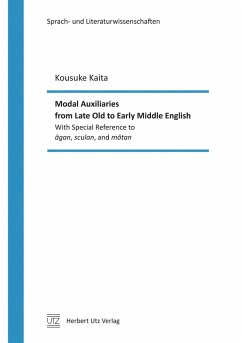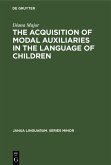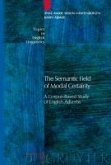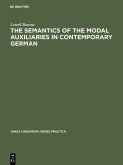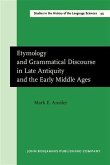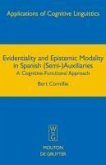Why do Modern English modal auxiliaries ought to, should, and must, meaning OBLIGATION, occur in the present tense, yet their forms are in the preterite? Why does to accompany ought? One of the solutions to these questions is to look at the history of the English language. This monograph deals with the history of ought to, should, and must, which are of different syntactic and semantic origins: ought to stems from a main verb of Old English agan 'to have' (POSSESSION) along with to; should derives from sculan 'must' with its 'deviation' to shall, and motan originates in 'to be allowed to' (PERMISSION). The work concentrates on the transition from Old English (700-1100) to Middle English (1100-1500), which is a crucial period in the history of the English language. Topics addressed include the linguistic review of modality, the philological reading of primary texts, and the occasional reference to the other Germanic languages.
Dieser Download kann aus rechtlichen Gründen nur mit Rechnungsadresse in A, B, BG, CY, CZ, D, DK, EW, E, FIN, F, GR, HR, H, IRL, I, LT, L, LR, M, NL, PL, P, R, S, SLO, SK ausgeliefert werden.

